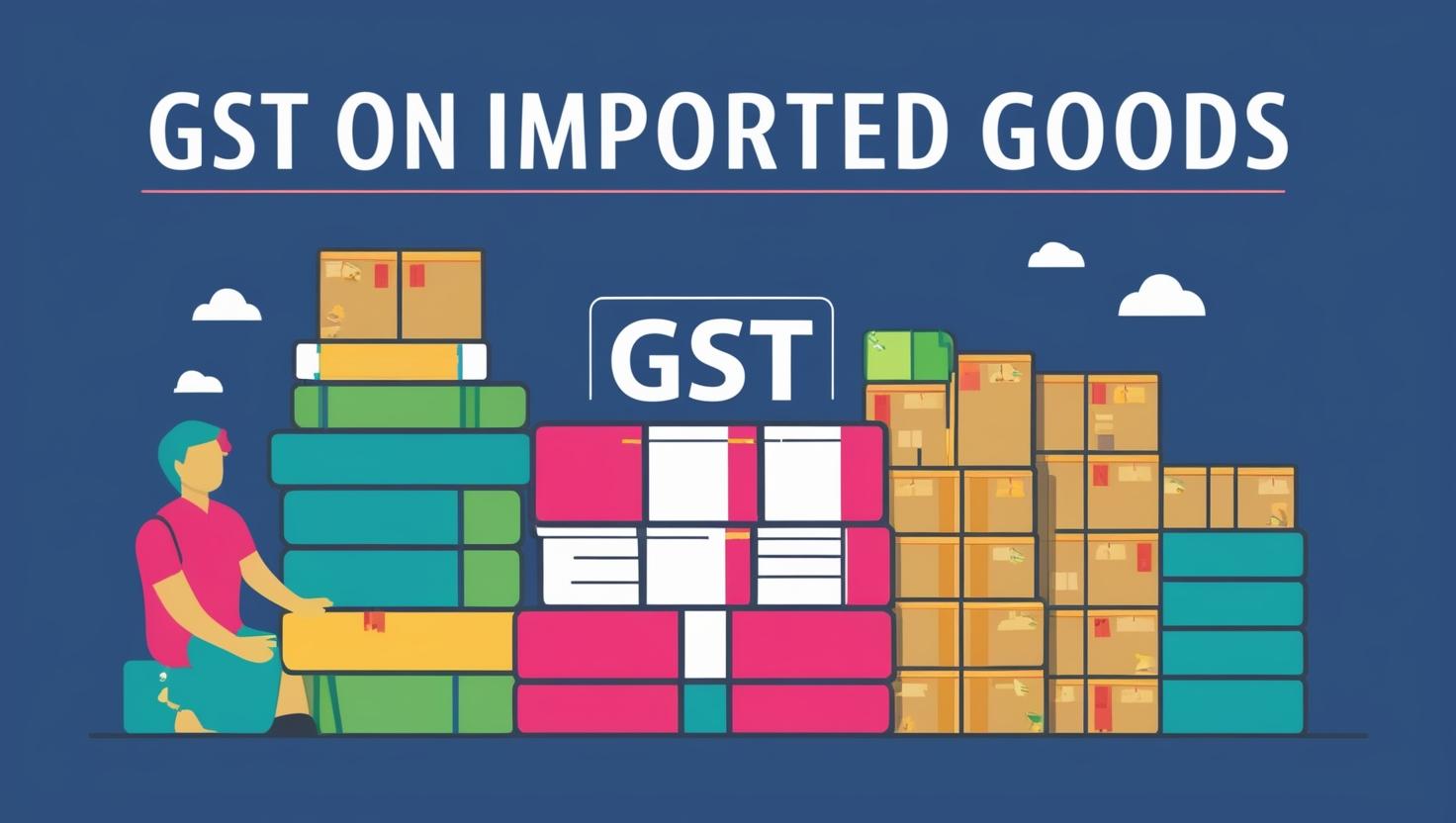The GST Act defines the import of goods as bringing goods into India from abroad. Accordingly, the GST Act considers all imports into India as inter-state attracting IGST. In addition to the IGST, the import would also be subject to Customs Duties. Thus, when goods are imported into India, IGST would be applied to the value of the goods and collected along with Customs Duty. The Customs Tariff Act, 1975 has already been amended to provide for levy of integrated tax and the compensation cess on imported goods, in anticipation of the GST rollout. While GST applies to imports in addition to the Basic Customs Duty, GST Compensation Cess shall levy on certain luxury and demerit goods under the Goods and Services Tax (Compensation to States) Cess Act, 2017.

GST on Imports
As a basic principle, GST law says that all supplies of goods & services made as imports into India will be treated as an inter-state supply. All inter-state supplies attract IGST. So import of goods and services into India will attract IGST. Basic custom duty and all applicable customs levy will continue to be charged.
- IGST on import of goods will be levied and collected under the Customs Act, 1962.
- IGST on import of services will be covered under the IGST Act.
Here the importer has to deposit IGST onreverse charge basis. Except in case of OIDAR (Online Information Data Access and Retrieval) services, the supplier has to seek registration and pay taxes. The IGST paid on imports will be available as input tax credit to the importer. This can be set off against the GST outgo on supplies made by the importer.
Import of Goods
Following the implementation of GST, the import of commodities will not be impacted by charges such as safeguard duty, education cess, basic customs duty, anti-dumping duty, etc. All these additional custom duties will be subsumed by GST.
Article 269A of the GST regime states that the supply of commodities or services or both, if imported into India, will be considered as supply under inter-state commerce or trade and will attract integrated tax. For instance, if the assessable value of a commodity imported into the country is Rs.500, basic customs duty is 10%, and the integrated tax rate levied is 18%, the taxes shall be computed in the following manner:
Assessable Value = Rs.500
Basic Customs Duty = Rs.50
Value for the levy of integrated tax = Rs.500 + Rs.50 = Rs.550
Integrated Tax = 18% of Rs.550 = Rs.99
Overall Taxes = Rs.50 + Rs.99 = Rs.149
Over and above these taxes, commodities may also attract an additional cess under the GST regime. This cess shall be collected on the value chosen for the levy of integrated tax. In the aforementioned example, the cess will be levied on Rs.550.
Import of Services
The import of services is defined as the supply of a service by a supplier who is based outside the company, but the recipient of the services is based in India, and the place at which the service is supplied is also within the geographical boundaries of the country.
The provisions present in Section 7(1)(b) of the Central Goods and Services Tax Act, 2017, mentions that when services are imported with consideration, it will be deemed as a supply, regardless of whether it is utilised in the continuance or course of business. When services are imported without consideration, they will not be deemed as supply. Businesses, however, are not mandated to undertake any tests for service imports to be deemed as a supply.
Moreover, the provisions present in Schedule I of the Central Goods and Services Tax Act, 2017, services imported by registered taxable individuals from relatives or distinct individuals as stated in Section 25 of the Central Goods and Services Tax Act, 2017, in the continuance or course of a business will be considered as supply regardless of whether or not it has been made without consideration.
Input Tax Credit
Under the GST regime, an importer who is registered can use the IGST levied to them when importing goods as input tax credit. During the outward supply of goods by the importer, the input tax credit could be used to pay taxes such as CGST / SGST / IGST. The importer can also avail GST Compensation Cess along with the input tax credit of IGST before transferring it to the ones in the supply chain. The importer, however, will not be able to avail the credit of basic customs duty. In any case, if the importer wishes to avail input tax credit of GST Compensation Cess and IGST, he/she will have to compulsorily declare GSTIN (GST Registration Number) in the Bill of Entry.
GSTN provides provisional IDs which can be utilised over the course of the transition period, and importers are urged to ensure that their GSTIN registration process is complete. Since the GSTIN declared in the Bill of Entry is the basis for the availability of input tax credit, registered individuals can avail input tax credit only if they furnish Form GSTR 2 which contains all applicable details as mentioned in the Invoice Rules along with relevant information as required. GSTN will be interconnected with Customs EDI (Electronic Data Interchange) system for the validation of ITC. Moreover, information relating to the Bill of Entry in non-EDI locations will take a digital format and will be utilised for validating input tax credit provided by GSTN.
